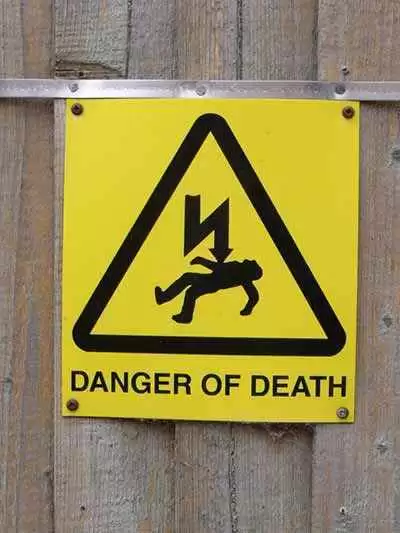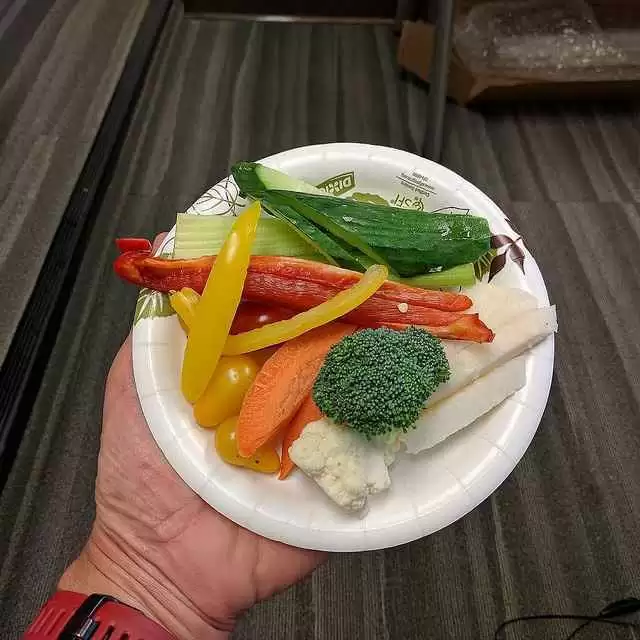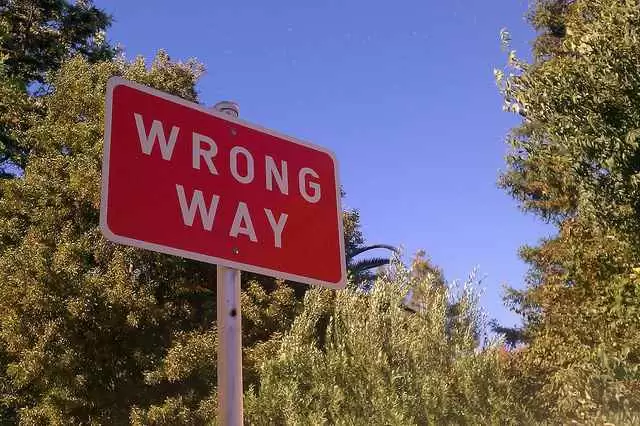
Celiac.com 09/08/2016 - I'm going to discuss a topic that I'm sure will be fraught with controversy. However, as someone who has watched the difficulty that so many new patients have in navigating their diets on gluten-free and celiac forums for the past twelve years, I believe it's time to consider a new model for approaching the gluten-free diet.
A gluten-free diet is essential to the celiac patient, but it disrupts the metabolism in profound ways that, until now, we have ignored because there is absolutely no other option for those of us who can't digest gluten. It is worth noting that there are other situations where we may find ourselves drastically reducing carbohydrates in order to realize health benefits. (Bear with me here, I'm going to tie it all together soon!) Changing the diet to limit or eliminate one's intake of grains and starch is a common response to many of the following situations:
- People who have celiac disease, non-celiac gluten sensitivity or wheat allergy.
- Diabetics who seek to stabilize blood sugar.
- People with small intestinal bacterial overgrowth (SIBO) who need to limit all di- and polysaccharides (most starches and sugars) per the SCD or GAPS diets.
- People on the FODMAP (Fermentable Oligosaccharides, Disaccharides, Monosaccharides And Polyols) diet for fructose, lactose and fructans intolerance. Many celiac patients report benefits of this diet when symptoms don't resolve after treating celiac disease.
- People starting the Paleo diet or the autoimmune protocol diet (AIP) are instructed to stop eating grains and processed foods.
- People eating a very low-carb diet (below 40 grams per day) in an effort to shed excess body weight.
- People with epilepsy and certain other neurological disturbances who benefit from a reduction in carbohydrates in order to promote ketosis (see Gut and Psychology Syndrome diet, or "GAPS diet").
- People who are fighting metabolic syndrome and insulin resistance.
Celiac.com Sponsor (A12):
The thing that all these situations have in common is the need to make a significant dietary reduction of grains and starch. While the standard American diet consists of 300-400 or more grams of carbs a day, some diets restrict carb intake to less than 20-40 grams. A significant carb reduction of any kind can cause a huge strain on our well-being by causing a dip in thyroid function.
Paleo diet authors generally recommend a maximum of 100-150 grams of carbs in order to stabilize blood sugar, a decrease in carbs of at least 50% for most people.
Even those of us who are merely cutting out gluten because of a celiac diagnosis can have a very difficult time adjusting to the new diet. Unfortunately, little is mentioned about the down side of making such a huge, if necessary, change in eating habits.
About a third of us feel so lousy after cutting down on our carbohydrate intake that we seriously consider turning our backs on our new diets. The strain of staying on track can be overwhelming.
Twelve years ago, as a newly-diagnosed celiac patient, I experienced sleep disturbances, anxiety so high I couldn't relax, hyper-vigilance, an absolutely crushing brain-fog as well as general malaise. I had been sent out into the world beyond my doctor's office with no more than a celiac disease diagnosis and the advice that I now need to stop eating gluten.
And stop I did.
I had been ill for so long prior to my diagnosis that I would have given up all food if I thought it would make me feel better. I was so distrustful of every processed food I had grown accustomed to that for the first two weeks I ate little more than broiled chicken breasts, steamed broccoli and rice. The whole process of shopping, cooking and eating sometimes became psychologically overwhelming. I was afraid I'd starve to death if I left the house for more than half an hour so I always kept a gluten-free protein bar in my purse to prevent all-out panic.
There may be more than one process at work here.
Why do I feel so awful?
A couple of small studies point to a problem low-carbers have in maintaining production and uptake of the thyroid hormone triiodothyronine (often referred to as T3). T3 is the most active form of thyroid hormone. Every cell in the body needs it for oxygen uptake. A sudden reduction in carbohydrate intake can lead to a dip in T3 availability that can lead to cognitive problems, depression, anxiety, fatigue, weight gain, constipation, heart palpitations and a laundry list of other hypothyroidism related symptoms and complications.
Although this can happen to anyone reducing carbohydrates, most people will eventually bounce back if they are getting over 100 grams of carbs a day. However, for those very-low carbers who stay under 20 daily grams, they can expect to deal with a sluggish thyroid until their carb intake increases to maintenance levels.
Gluten Withdrawal is Real
It also appears that some of us are quite sensitive to the opioids in the grains we most commonly eat. Every grain has it's own opioid, but they differ from each other. Even cutting out wheat or gluten while maintaining a high carb intake can give us symptoms that mirror drug withdrawal, so obviously, it's not just about carb reduction.
Although the amount of opioids in wheat is quite small, we all have opioid receptors in our brains that have the potential to become quite dependent on our little wheat-driven drug rush. I think anyone who has quelled their hunger or anxiety with a piece of bread and butter and felt that "ahhhhhh" response can relate. The enormous (if temporary) sense of satisfaction that comes with sitting down to a bowl of pasta may be due to the presence of the opioids in the semolina wheat grains that were used to make that delicious fettucine alfredo.
"Gluten withdrawal," has a real biochemical basis; you wouldn't expect someone to kick Ativan or Vicodin in one fell swoop. In fact, it's downright dangerous. Perhaps we shouldn't be asking it of people who must give up their usual grains.
People who kick an addictive drug have been helped mightily by the use of a drug called "low-dose naltrexone (LDN). It has been suggested that, by the same mechanism, it can prevent some of the problems created by the discontinuation of grains. I, for one, would love to see some research on this.
Most Americans are familiar with the concept of filling up on a Chinese buffet only to feel hungry ten minutes later. Most Asian recipes use rice as a base of the main dish, so we are getting plenty of carbs. But why do we still feel hungry soon afterward even though our belts are still too tight?
I remember back when my family lived in a great little neighborhood in Pennsylvania. Norristown, like most Philadelphia suburbs, was comprised of small storefronts and lots of nearly identical, charming brick row houses. We lived in a cute little twin number next door to a big Asian family with whom we soon became acquainted. One of the kids brought over a very generous house-warming gift of wonton soup. The first time I slurped from Ahn Nguyen's golden liquid luxury, replete with beautifully folded floating dumplings, I thought I'd died and gone to heaven. She sent many delicious treats over during the time we lived next to them and I can't think of those wonderful dishes these many years later without my mouth watering.
Although it couldn't come close, I tried to pay some of our debt to them by inviting the family of seven over to a big dinner of spaghetti, meatballs (complete with homemade marinara), fresh grated Parmesan and garlic bread and a big green salad (obviously, this was a time previous to my celiac diagnosis.) Ahn and her family all seemed to enjoy the meal, but she confessed to me afterward that she needed to go home for a bowl of rice in order to feel full. This after she had eaten two big plates of spaghetti!
Clearly, her discomfort wasn't a matter of getting enough starch.
My best guess is that she missed the specific opioids in rice that she had likely consumed at every meal. I can't help but wonder now whether some Tinkyada rice pasta would have done the trick for her. Perhaps the opioids in the wheat-based food helped somewhat but they just couldn't satisfy her craving for that tiny amount of rice opioid; that narcotic-like substance on which her brain and body had come to depend.
The Role of Ketones
Another possible mechanism at work might be the unusual difficulty that some people have in converting fatty acids into ketones. When human beings don't have enough sugar or starch available from our diet to convert into glucose, we really feel it in fatigue and mental sluggishness. We may become uncommonly irritable as well. Luckily, our bodies have the marvelous adaptive ability to convert fatty acids to ketone bodies. These ketone bodies may be converted from either dietary fatty acids or from our own fat stores. Ketones are the only known source outside of glucose that lend energy to our brains and bodies.
Unfortunately, about 14% of the population (including me) has an APOe4 gene variant that makes our livers less efficient at getting energy from fat; we have a harder time producing ketone bodies than everyone else when our glucose stores suddenly plummet. Note that this gene is also associated with a marked increase in the risk of Alzheimer's disease. Some researchers believe that this is due to the difficulty in making ketones, which may protect the brain from insulin resistance.
For those of us with APOe4, it may just be that much more difficult to achieve a fat-adapted state that will allow the production of ketone bodies. Those of us with APOe4 and everyone who has a harder time going low-carb may just need a little more time in the adaptation process to get our livers to change their stubborn ways. It can't be healthy, while waiting for ketones to kick in, for our brains and bodies to be starved of energy.
Is it possible that there is one answer to all of these problems? Could a much more gradual transition from high carb to low carb or gluten-free put less strain on body systems?
I propose that we examine the possibility that cold turkey isn't the best way to cut back on either gluten or carbs. What evidence do we have that the best way is the hard way?
Yes, for some of us, wheat or gluten is absolute poison and we want to be rid of it as soon as possible. But will taking a week or two to wean off of it really have any lasting negative impact on our overall health? For those who don't have severe digestive symptoms at the point of a celiac or NCGS diagnosis, a strategy of careful withdrawal should be considered.
So, let's say you have just been diagnosed with celiac disease. Or diabetes, or metabolic syndrome, or hypoglycemia or SIBO, or epilepsy or you simply want to drop excess weight on the Atkins diet. You've been told, or have figured out on your own, that cutting down on carbs or cutting out gluten is your next step back to health. How do you go about it?
Should you simply throw out all the crackers? Toss all your mixes, breads, flours and pastas? File all your cupcakes, cookies and brownies to the round file?
Well, yes and no.
Get rid of everything but your last loaf of bread and put that in the freezer. It will help to get those slices apart later if you can stagger the slices inside the wrapper or even put a square of wax paper between them. This also works well for people on a gluten free diet who are cutting carbs. In that case, use gluten-free bread.
If you feel significant distress when cutting carbs or grains, let your head tell you when to eat that slice of bread. When you get dizzy, foggy and irritable, that's the time. Just try to spread them apart as much as possible without suffering overly for it. Trust me on this, in a couple of weeks it will all be over!
Those who don't experience discomfort may still benefit by following this guideline:
- Days 1-3: two slices of bread maximum
- Days 4-6: one slice of bread daily; you may want to eat 1/2 slice twice a day
- Days 7-14: 1/2 slice of bread per day, maximum
- After day 14, quit eating it altogether
When it's time to have your slice of bread, take a piece out of the freezer, put it in the toaster or thaw it in the microwave for 10 seconds and eat it with a big slab of good butter. Kerry Gold is my favorite butter. It's from grass-fed cows so it has lots of healthy omega-3 fatty acids. If this is your last loaf of real bread, you might as well make it count! Consider this as the long goodbye and the first step in the mourning process.
Spread those slices out for as long as you can stand it, but don't let yourself suffer for long.
Pretty soon, one slice a day will keep all those annoying withdrawal symptoms completely at bay. After that point, you only need to eat a half a slice at a time. You may soon go a day or two without noticing any problems; at that point, you're home free, and you need never eat it again. Throw the rest out or leave it out for your family, if you have an gluten-eaters in the household.
Clearly, this whole subject needs a lot more research. I'd like to see more study on exactly what happens to thyroid levels during carb restriction. I'd like to know what it does to our blood sugar, our livers and our brains when we make huge lifestyle changes such as these. I'd like to know how we vary in our ability to produce ketones and how many of us function optimally on ketones in the absence of glucose. We should also know what happens to our microbiome, the bacterial colony that lives mainly in our guts when we change our diets. I think we are just now scratching the surface in learning how food interacts with our bodies.
Yes, there is a lot to learn and some are making strides in discovering how food helps and hurts our health. In the meantime, we are wise to tread carefully, even when making a necessary lifestyle upgrade.
References:
- Decline in T3 after low carb diet:
- Ullrich IH, Peters PJ, Albrink MJ. Journal of the American College of Nutrition [1985, 4(4):451-459]
- GAPS diet: Open Original Shared Link
- FODMAPS diet: Open Original Shared Link
- Atkins diet: Open Original Shared Link
- Paleo diet: Open Original Shared Link

















Recommended Comments
Create an account or sign in to comment
You need to be a member in order to leave a comment
Create an account
Sign up for a new account in our community. It's easy!
Register a new accountSign in
Already have an account? Sign in here.
Sign In Now